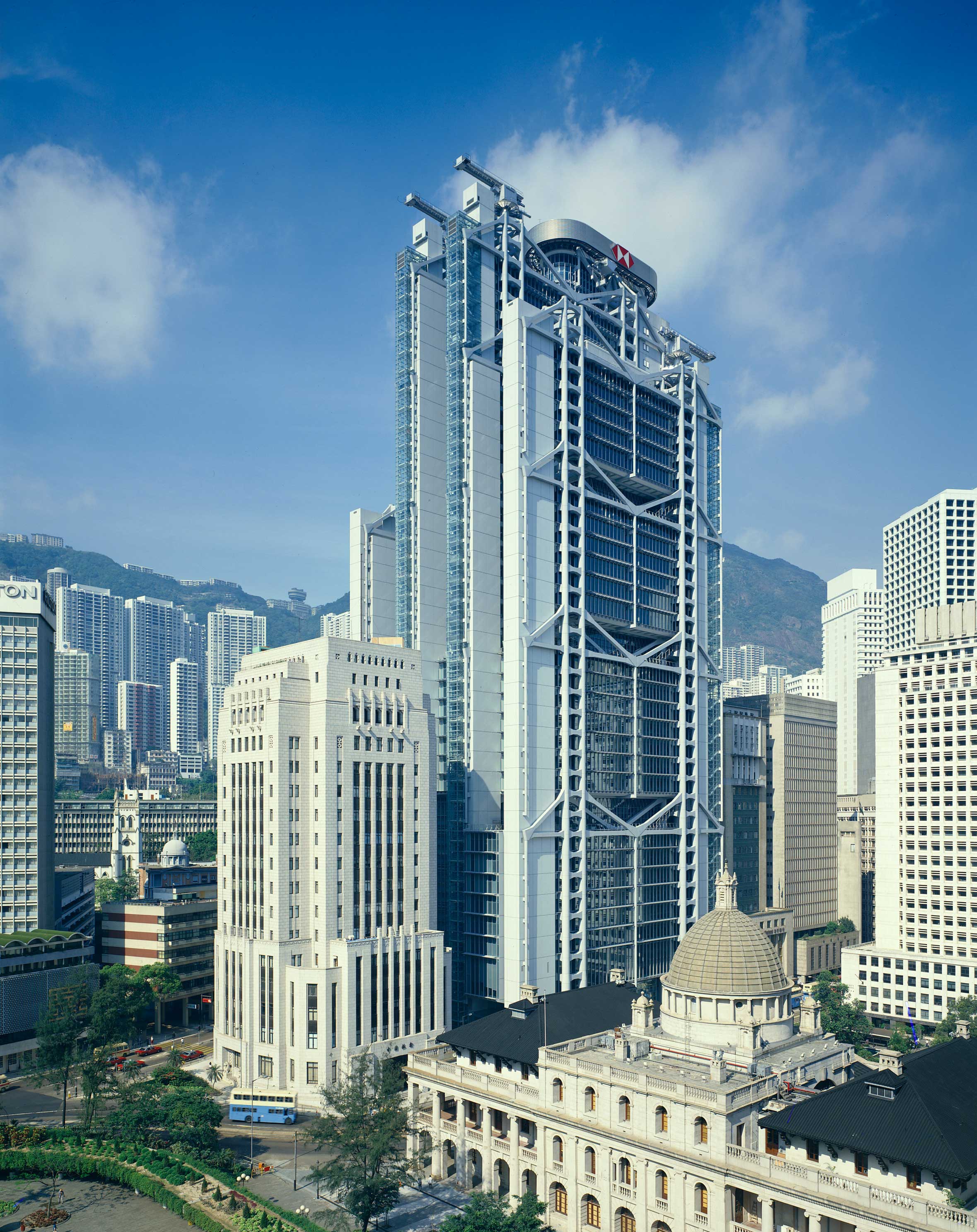High-tech architecture
'High-tech' is an architectural style that incorporates elements of the new high-tech industries and advanced construction techniques into building design. Also known as 'late modernism' or 'structural expressionism', it emerged in the 1970s as a response to a growing disillusionment with modern architecture that was felt to have produced monotonous, standardised structures.
High-tech often seen as being the link between modernism and postmodernism. Developed out of modernism, high-tech attached importance to the object itself rather than the object being a functional use of space. It aimed to achieve a new industrial aesthetic, inspired by technological progress and the computerisation of industry.
It sought to integrate the technical equipment of the building into its structure, marrying functionality with its aesthetics. This would be taken further by architects such as Richard Rogers on buildings such as Lloyds of London and the Centre Pompidou in a style that was sometimes referred to as 'bowellism', based on the idea that the greatest amount of free floor space could be maintained by externalising building services.
Some of the most well-known architects identified with the high-tech style are Norman Foster, Richard Rogers, Renzo Piano, Michael Hopkins, and Jean Nouvel.
Some of the most well-known examples of high-tech buildings are:
- City Hall, London.
- Bank of China Tower.
- Lloyds of London.
- Allianz Arena, Munich.
- Centre Pompidou.
- Beetham Tower, Manchester.
- Internationales Congress Centrum, Berlin.
- HSBC Headquarters, Hong Kong.
- Listing of Sainsbury's supermarket in Camden Town.
- Channel Four Television Headquarters.
- Schlumberger Research Laboratories, Cambridge.
- Renault parts distribution centre, Swindon.
- Grand Union Walk housing, London.
- TV-am building, Camden.
[edit] Related articles on Designing Buildings Wiki
- Architectural styles.
- Art Nouveau.
- Bank of China Tower.
- Blobitecture.
- Brutalism.
- Centre Pompidou.
- Concept architectural design.
- Constructivist architecture.
- Deconstructivism.
- Expressionist architecture.
- Fuji TV Building, Tokyo.
- Futurist architecture.
- International Style.
- Italian brutalism.
- Last Futures: Nature, Technology and the End of Architecture.
- Megastructure.
- Metabolism.
- Modernist architecture.
- Neo-futurism.
- Nicholas Grimshaw.
- Norman Foster.
- Parametricism.
- Postmodern architecture.
- Richard Rogers.
- Sage Gateshead.
- Speculative architecture.
[edit] External references
- MLJ - High-tech architecture
Featured articles and news
A case study and a warning to would-be developers
Creating four dwellings for people to come home to... after half a century of doing this job, why, oh why, is it so difficult?
Reform of the fire engineering profession
Fire Engineers Advisory Panel: Authoritative Statement, reactions and next steps.
Restoration and renewal of the Palace of Westminster
A complex project of cultural significance from full decant to EMI, opportunities and a potential a way forward.
Apprenticeships and the responsibility we share
Perspectives from the CIOB President as National Apprentice Week comes to a close.
The first line of defence against rain, wind and snow.
Building Safety recap January, 2026
What we missed at the end of last year, and at the start of this...
National Apprenticeship Week 2026, 9-15 Feb
Shining a light on the positive impacts for businesses, their apprentices and the wider economy alike.
Applications and benefits of acoustic flooring
From commercial to retail.
From solid to sprung and ribbed to raised.
Strengthening industry collaboration in Hong Kong
Hong Kong Institute of Construction and The Chartered Institute of Building sign Memorandum of Understanding.
A detailed description from the experts at Cornish Lime.
IHBC planning for growth with corporate plan development
Grow with the Institute by volunteering and CP25 consultation.
Connecting ambition and action for designers and specifiers.
Electrical skills gap deepens as apprenticeship starts fall despite surging demand says ECA.
Built environment bodies deepen joint action on EDI
B.E.Inclusive initiative agree next phase of joint equity, diversity and inclusion (EDI) action plan.
Recognising culture as key to sustainable economic growth
Creative UK Provocation paper: Culture as Growth Infrastructure.
Futurebuild and UK Construction Week London Unite
Creating the UK’s Built Environment Super Event and over 25 other key partnerships.
Welsh and Scottish 2026 elections
Manifestos for the built environment for upcoming same May day elections.
Advancing BIM education with a competency framework
“We don’t need people who can just draw in 3D. We need people who can think in data.”

























